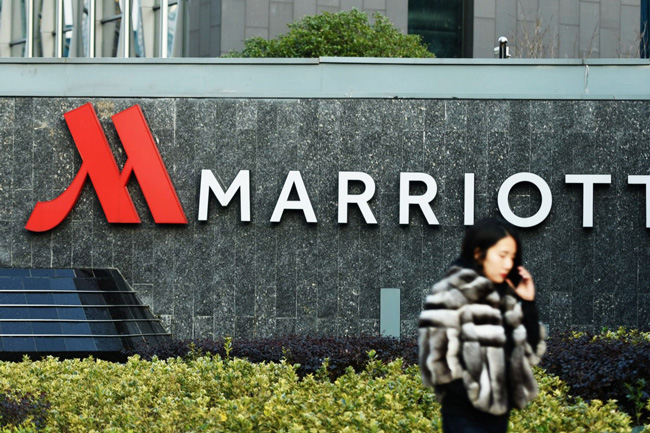A fifth of Marriott International’s hotels in Asia-Pacific outside China remain closed as the Covid-19 pandemic continues to wreak havoc on the travel industry.
Though the number is now much smaller than the 50 per cent that were shuttered at the height of the outbreak, it illustrates the industry’s struggle against a pandemic that has crippled global travel and reduced people’s spending power.
“I’d say about 50 per cent of hotels in Asia closed at one point,” said Craig Smith, Marriott’s group president, Asia-Pacific. “We don’t have any hotels closed in mainland China, and probably 20 per cent of hotels outside China are closed.”

This month Marriott is seeing a 55 per cent occupancy rate in its hotels in mainland China
This has not stopped Marriott, which has 30 brands including St. Regis, Ritz-Carlton, JW Marriott and Le Meridien, from opening the new 158-room JW Marriott Nara, about 500km south of Tokyo, on Wednesday. It is the group’s 800th hotel in the region, and its 50th in Japan.
The US-based hotel operator is aiming to open between 40 and 50 new hotels this year, and 100 next year.
Currently domestic travel, “staycations”, and millennials – who appear to be more willing to travel despite coronavirus risks – are fuelling the recovery of the hotel segment.
“We remain confident in the resilience of travel, our owners and franchisees, guests and associates as well as the future prospects of lodging in Asia-Pacific, our second-largest market,” Smith said. “We are encouraged by recent trends, especially in China, where demand has been driven primarily by domestic tourism, and we will continue to focus on strengthening our footprint in this important, growing market.”
This month, Marriott is seeing a 55 per cent occupancy rate in its hotels in mainland China, and this is expected to rise to 60 per cent in August. Its 25 hotels in Hainan, for example, are doing better this year than last year owing to domestic travel demand.
On the other hand, countries such as Indonesia and India, where the number of infection remain high, are likely to see a recovery much later than other markets in the region. Marriott has more than 50 hotels in Indonesia, and 120 in India.
In the first three months of the year, at the height of the Covid-19 pandemic in the region, eight out of 10 hotels were estimated to have closed down, according to property consultancy Colliers. The closures may have led to losses of at least US$50 billion in first-half revenues for the segment.
The slump in the global travel industry has triggered an increase in “re-flagging” of existing hotels that have sought to be part of the Marriott group, according to Smith. Inquiries from independent hotels wishing to be re-flagged under the Marriott brands have risen by 30 to 40 per cent this year.
The grim outlook for the hotel segment is also reflected in the number of hotels changing hands worldwide. Sales of hotels were down by half in the first five months of the year compared to the previous year, according to Real Capital Analytics, which tracks property deals worth at least US$10 million.
Investment in other property segments such as residential, office, and retail declined between 10 per cent and 34 per cent.